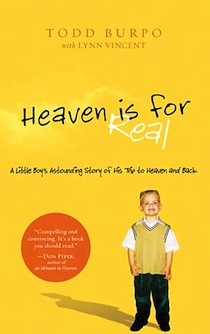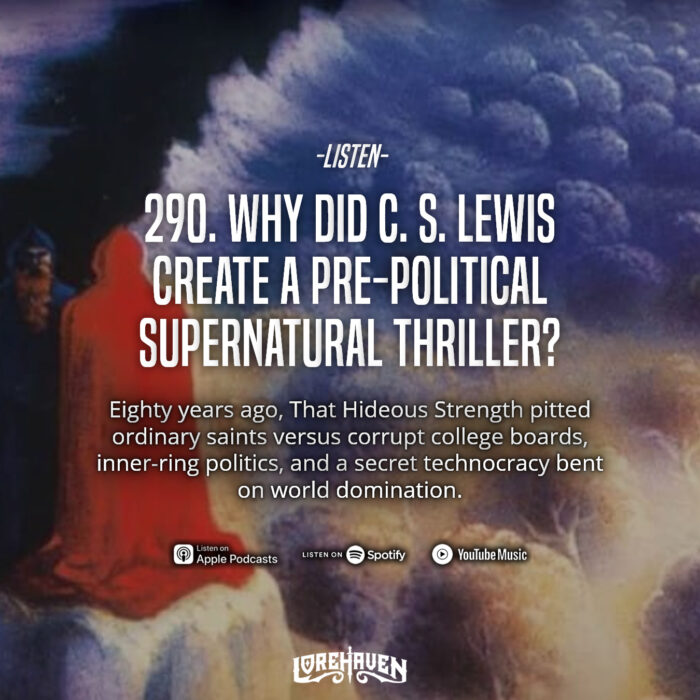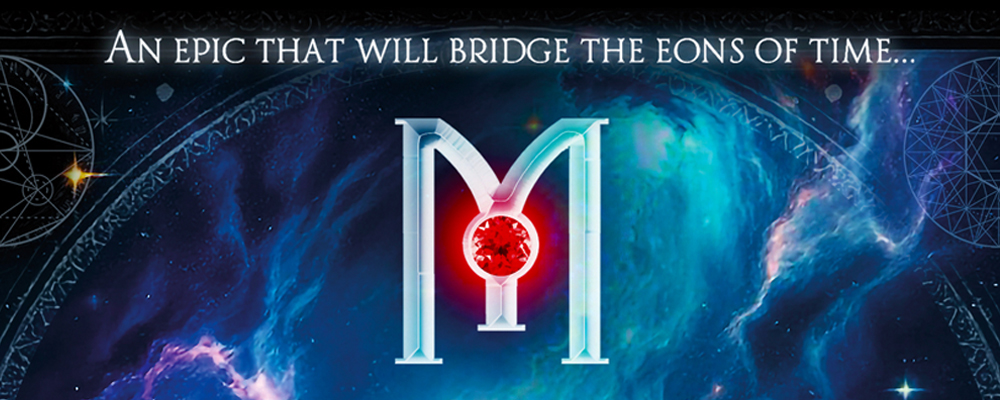Against Un-Scriptural Heaven Speculations
The “heaven tourism” genre is hugely popular — and often consisting of mere speculative fiction masquerading as fact.
 Countering this trend, Tim Challies overviewed today a re-release of John MacArthur’s nonfiction The Glory of Heaven.
Countering this trend, Tim Challies overviewed today a re-release of John MacArthur’s nonfiction The Glory of Heaven.
[… E]ven as authors are insisting that heaven is real1 and that they have seen it, hell is on the downgrade. […] Readers want the assurance that heaven exists and they want to believe that hell does not.
[…] He shows again and again that the greatest promise of heaven is not meeting those who have gone before or being free from sickness and pain, but being in the presence of the Savior. He is equally strong in exposing and critiquing heaven tourism books. He pulls no punches as he points out the massive contradictions between the various books in this genre and as he draws attention to just how often they contradict not only the facts of what the Bible says about heaven, but also the Bible’s whole theme and tenor. This is classic MacArthur, looking to the Bible, showing contradictions, and saying, “No way!”
One can only support such refutations of (at best) unnecessary speculation and “proof,” and (at worst) outright blasphemy.
The most crucial lie to refute is this:
Heaven is your default destination. You get there by being good. You get there apart from Christ. And you’ll love it anyway.
To that I say, and would repeat this two-part challenge to anyone:
- What would make Heaven a paradise apart from the presence of Jesus Christ, your loving Creator and Savior?
- How could a pagan be anything but bored for eternity, with no sin to enjoy (and not even sinless Earthly pleasures to enjoy!)?
Still, quotes such as this one:
Heaven is eternal. Earth is temporal.2
… could accidentally reinforce the same errors the “heaven tourists” commit:
- Assuming, or incidentally reinforcing the assumption, that our eternity has nothing to do with Earth.
- Assuming, as Plato did, that abstract “spiritual” reality is true reality.
- Assuming materialism is the only sin we can commit (versus the truth that God transforms/redeems physical creation, cf. Rom. 8:24).
- Assuming that resurrection bodies are fit for heaven. This is like assuming you’ll get to have your dream vacation during your airport layover rather than taking the next flight to your truly final destination.
About the latter, MacArthur rightly notes, based on Romans 8:
In this body we groan because we are burdened by sin, sickness, sorrow, and death. Yet we don’t want to be unclothed [a reference to 2 Cor. 5]. […] We want both our spirits and our bodies to enter the presence of God.3
Yet he seems to skip (notice I do not say reject) the resurrection of “the creation itself” so intertwined to the Apostle Paul’s pro-resurrection argument in Romans 8:
In heaven we will have real bodies […]4
Technically, on the New Earth we will have real bodies. Paul is clear in 2 Cor. 5 that the present Heaven is wonderful, but it’s a layover place. After death, we will still wait for our resurrection bodies and the final restoration of all things, including the groaning creation.
It’s a subtle distinction, but a vital one.
Fortunately, MacArthur’s fourth chapter, The New Jerusalem, touches on the promised “renovation” of creation, and the combining of the current Heaven and the old Earth into one place where God will dwell with man forever (Rev. 21:3).
Perhaps, then, the new edition of The Glory of Heaven will better emphasize the truth of the New Heavens and New Earth, our true eternal home. Perhaps Christians will have yet another nonfiction resource to combat, at worst, anti-Biblical and blasphemous teaching, and at best, unnecessary speculation, so we can be more Heavenly-minded and be of more Earthly good.
- Note Challies’ use of one of the most popular book’s titles. I understand that unlike other books, Heaven Is for Real affirms Scripture, Christ as Savior and Lord, and the Gospel. However, it remains vulnerable to these two challenges: 1) Why imply that Scripture’s testimony about Heaven’s reality is not sufficient proof? 2) Why ignore the promised New Heavens and New Earth, the redemption of creation, in favor of repeating the persistent “heaven is wholly apart from Earth and Out There” mythology? ↩
- The Glory of Heaven, 1998, p. 51. ↩
- Ibid, p. 54. ↩
- Ibid, p. 54. ↩


































Several months ago, the retired pastor at my church preached a series of sermons about heaven, while the active pastor was away. Perhaps like MacArthur, he emphasized the truth of the physical resurrection and preached against vague, feel-good doctrines about heaven. Although he also “skipped” mentioning what was to become of Earth or the New Heavens, he did seem to imply a doctrine of a New Earth at points. I’m quite sure that he wasn’t trying to subtly insert that doctrine, either. He wasn’t avoiding the question. I believe that from his theological perspective, it simply wasn’t an issue.
I think true reality is the union of the abstract spiritual reality and the physical reality. Alone, either “reality” is a vague, dark shadow of the truth of what God created.
My church is starting a series about heaven by Randy Alcorn, so I’ll be keeping an eye on these issues.
Oh, you may be in for a treat. I’ll be interested possibly to hear how that study goes.
[…] Previously I’ve been over some of this. But I have several main objections to the “Heaven tourism” books. […]